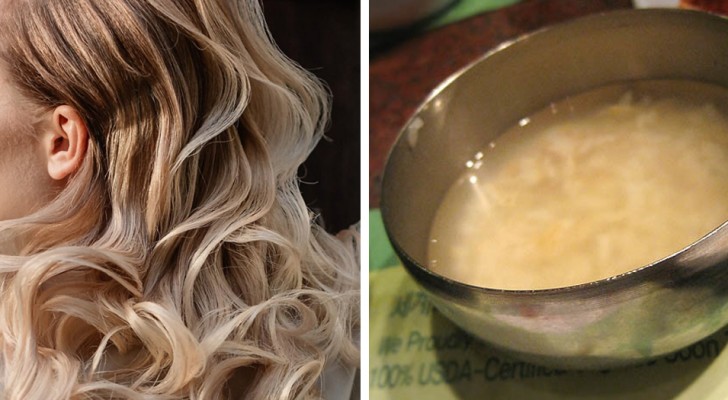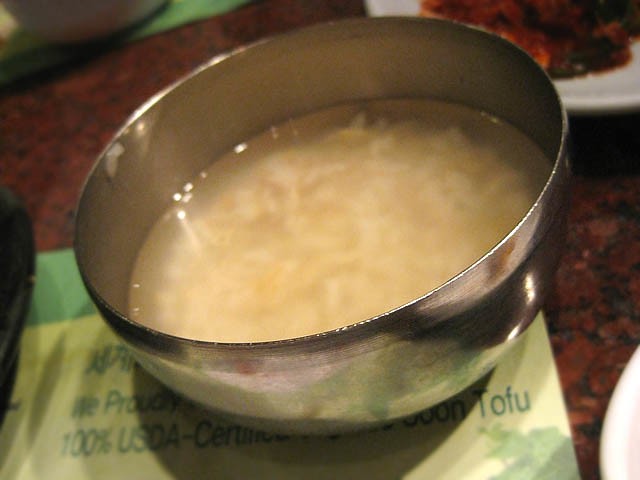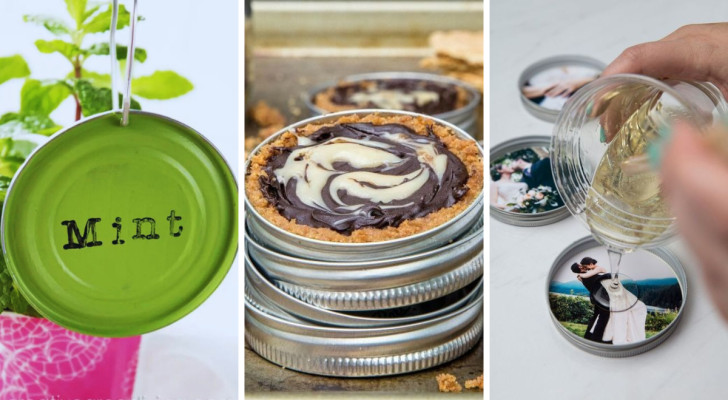Rice water: some of the uses of this inexpensive ingredient that has been used since ancient times

Rice water is a product used since time immemorial for beauty treatments, especially for the well-being of the skin and hair. In recent years, this natural substance, very easy to prepare and super cheap, is making a comeback as a DIY remedy with a thousand uses, both for taking care of your body and for other household chores.
There are many people around the world who praise its benefits in terms of soothing, protective and toning properties for the skin, as well as the advantages it brings in hair care, nourishing and strengthening them in a natural way.
Some studies have also confirmed several really valuable characteristics of the water obtained from rice, which can be obtained by cooking, washing or fermenting the grains. Then find out how you could prepare it and use it at home.

The various ways to prepare rice water
There are different methods to obtain rice water from the grains that we usually cook. There is no preferred type: many different varieties are used all over the world, and the basic properties that have beneficial effects for body care can be found in all of them. Rice water is obtained by cooking it (without salt), washing it or by fermenting it: in each case, it is always good to rinse the rice at least a couple of times to be sure to eliminate dust or pesticide residues.
- Boiling the rice: wash the rice well and drain it. Then pour it into a saucepan, adding water in an amount equal to four times more than that of the rice (if you use 100 grams of rice, you will need 400 ml of water). Boil everything, stirring with a wooden ladle from time to time, then remove the pot from the heat and press it with a spoon, so that it releases the chemicals inside it better, use a colander to drain it, thus collecting all the cooking liquid. , let it cool. You can keep it in the refrigerator for up to a week, and you should always dilute the cooking liquid with a little water before using it on the body.
- Soaking: you can also obtain rice water simply by keeping the rice (already washed) immersed in water, with the same proportions indicated. However, let at least 30 minutes pass before pressing with a spoon, and then continue filtering everything with a sieve and putting it in the fridge in a closed container.
- Fermentation: follow the process indicated for soaking, pressing well, but instead of refrigerating the liquid, leave it in a glass jar, at room temperature, for one or two days. When it starts to smell sour, move it to the fridge, and always remember to dilute it with water before using it.
The benefits for the skin
A 2013 study proved that so-called rice wine (fermented rice water) can have excellent soothing effects on skin that has been damaged by excessive exposure to the sun. Rice wine, in fact, increases the collagen in the skin, and consequently it appears plumped and toned. Furthermore, fermented rice water has excellent antioxidant properties, which means it is an excellent anti-aging product for the skin.
Furthermore, it helps to soothe the symptoms of skin irritation caused by the sodium lauryl sulfate (SLS) present in many personal care products, fighting the dehydration of the skin that is often noticed when you apply soaps and creams that contain that component every day. Then combined with other plant extracts, some chemicals present in rice water can protect the skin from the sun's rays.
There are still many testimonies from those who claim to experience great relief from applying rice water to areas of the skin affected by phenomena such as eczema, acne or various forms of skin irritation. There are still not enough results that can support this property of rice water with certainty, but many scientific observations seem to tend to confirm that the topical application of this liquid can really be soothing even in those cases.
The benefits for the hair
Rice water is rich in inositol, an antioxidant and nourishing substance that can be very beneficial for the health of hair stressed by frequent bleaching: it would in fact be able to nourish damaged hair from the inside, also reducing the appearance of split ends.

How to use rice water
Rice water can be applied directly to the skin or hair, also combined with essential oils or other natural ingredients that give it a pleasant scent, as well as their specific benefits. In any case, it is always better not to use that obtained by cooking or fermentation in absolute form, but it is advisable to dilute it with water
For the hair
- You can use rice water to rinse your hair after washing it normally. Dilute with a little water, and add a few drops of essential oil (lavender or citrus, for example, but also other aromas that you like), then pour the liquid into your hair, massaging from roots to ends. Leave on for at least 10 minutes and then rinse well. To use in this way there is also a variant of the fermentation method in which you will have to use only one cup of rice and one of water (and not four), and the fermentation must last between 12 and 24 hours but no longer. , then you can keep the rice water in the fridge for a few days until you need it.
- It is also possible to make a homemade shampoo. You will need to mix together with the fermented rice water (always diluted) a little Castile soap and, alternatively: aloe juice, drops of essential oil or a little chamomile infusion.
For the face
You can use rice water as a tonic by simply applying a small amount with a cotton pad or pad, dabbing your face and neck. There are those who also use it as a cleanser, massaging it directly on the skin and then rinsing. Again, you could dip a sheet of absorbent paper in rice water and use it as a mask to be placed in contact with the face for 15 minutes.
For the body
- Grate a small portion of a natural and delicate bar of soap and mix the flakes with rice water, then pour everything into the bathtub. It is a great way to take advantage of the antioxidant properties of vitamins E present in rice water.
- Body scrub: In a small bowl, mix salt (or coarser brown sugar), an essential oil of your choice and rice water, creating a slightly moist pulp, to use as an exfoliant for the body.
Natural cleanser
When you have to wash dishes that are not encrusted with difficult stains, you can use rice water, simply by soaking the sponge, and then rinsing. You can also add a little baking soda, and you will have an ecological substitute for normal dish soap.
Used as a soap, it also works to clean garbage containers: fill them with rice water, even diluted with normal water, and then rinse after 30 minutes.
Again, there are those who use it to polish glass and mirrors: pour it into a spray bottle, diluted with a little normal water, and spray it on a dry cloth, to be passed on the surfaces to make them shine again.
Fertiliser for the garden
The rice water obtained by cooking or soaking can be useful for plants. The starch contained in it, in fact, is a delicate fertilizer that promotes the presence of beneficial bacteria, and enriches the soil with nitrogen, phosphorus and potassium. However, it must be poured as soon as it has been prepared, or in any case avoid that it has fermented, because it is not known after fermentation this liquid still has the same capabilities. Furthermore, the studies conducted in this sense have observed the effects only for a few weeks, so it is not even known if it is a practice that in the long run may have contraindications. Therefore it is recommended to administer rice water only every 3 or 4 weeks.
In the kitchen
A typical trick of Korean cuisine is to defrost frozen fish in rice water, so as to neutralize the strong odor that many find unpleasant, and so it won't stay in the kitchen or fridge for too long!
Again, in the country of calm mornings, the water from the second or third rinse of the rice (or what we have indicated as obtained by soaking) is used as a thickening liquid in which to cook the broth used in many different soups.
Also, just as it deodorises garbage containers, rice water can be a great way to rinse containers and jars where we have stored pungent-smelling food, which is often difficult to remove unless we resort to vinegar and bicarbonate.
Did you already know all these uses of rice water?





